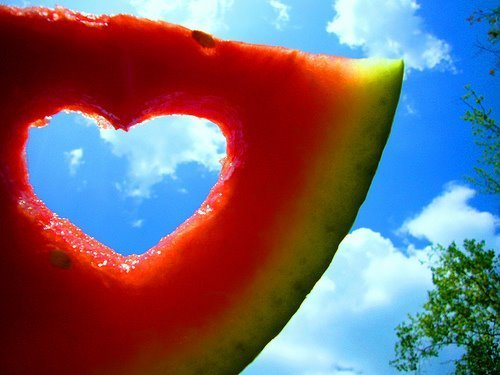
Summertime Produce
One of the best parts of summer? Hands down, the abundant seasonal fresh produce! Instead of grabbing that bag of chips, we can snack on healthful apricots, plums, cherries, grapes, nectarines, peaches, pluots, melons, mangos. Easy to pack into a cooler, summer fruit conjures up sweet memories that we share.
 Summer is the perfect time to choose organic.
The
Environmental Working Group has been helping us feed our families safely with the cautionary Dirty Dozen since 2004. These are foods that tested positive for high concentrations of pesticide residue and several different pesticides on that one fruit.
This list is just a guide. The EWG does not include GMO as part of their testing as they focus on pesticides and chemicals. Therefore, some items on the clean 15 (like corn and papaya) should be avoided for other reasons (because they are genetically modified).
Our rule of thumb is easy:
any item you eat a lot, choose organic. This rule is amplified for growing children who tend to choose the same foods therefore increasing their exposure to the same high levels of the same pesticides and chemicals.
The EWG Dirty Dozen 2017 list includes:
|
|
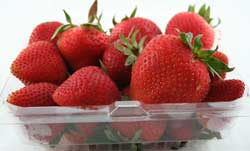
Strawberries
number one on the list
Berries always top the list for the highest variety of pesticides and a huge percentage of the chemicals staying on and in the fruit.
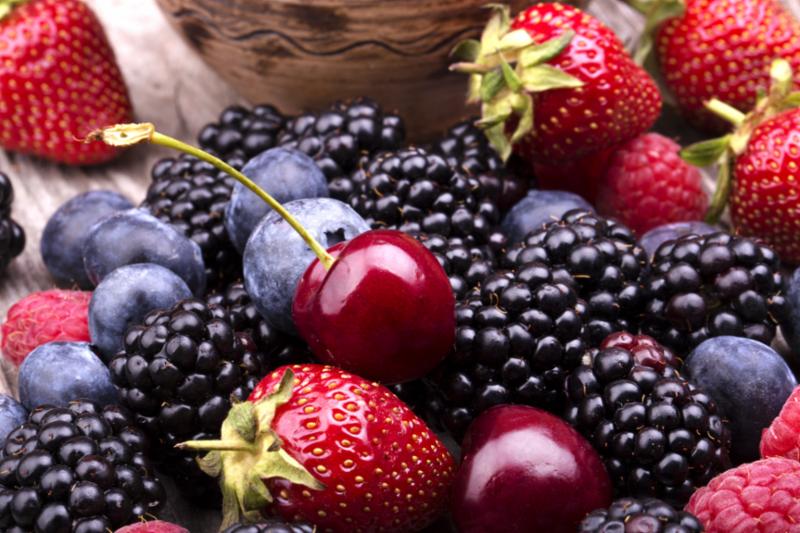
A single sample of strawberries tested positive for 20 different pesticides!
And let's face it, berries are difficult to wash. I mean, how many of us scrub each of these little guys?
Our rule for berries: all berries, always organic.
|

Spinach
on the list year after year
We eat our leafies to be healthy yet conventional ones offer up some heavy duty chemicals and pesticides. Spinach tested showed high levels of contamination with a neurotoxic killer otherwise banned in Europe. Spinach samples returned twice the pesticide residue of any other crop tested.
This is also another one that is hard to wash, most of us just do a quick rinse. Best to enjoy leafy greens with the organic label.
|
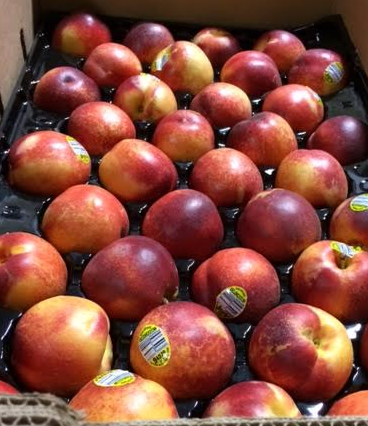
Nectarines
well loved stone fruit
Many of the fruits in summer are called stone fruit due to the pit in the middle. The seed is inside the stone. Nectarines, Peaches, Cherries, Plums, Pluots are all stone fruit.
The Nectarine is a fuzzless peach. This fruit is so well loved in the U.S. that it is particularly troubling that almost 100% of the fruit tested positive for high levels of pesticides.
Choose organic for your summer snacking fruit.
|
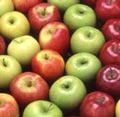
Apples
always on the list
This fall fruit is always on the list. Well loved by kids, used as a staple for many with applesauce snacks. The Apple is an important one to reach for with the organic label.
|
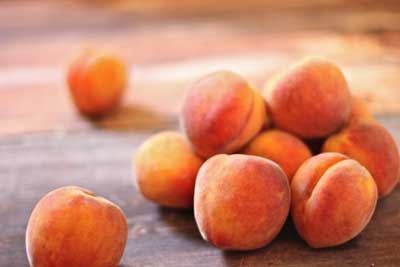
Peaches
the picture of summer
Another stone fruit that joins the dirty dozen is the peach.
However, if you only eat one peach a year, it doesn't matter nearly as much as the 100 bananas you eat even though bananas are not on the list anymore. Always choose organic for those items you consume most.
|
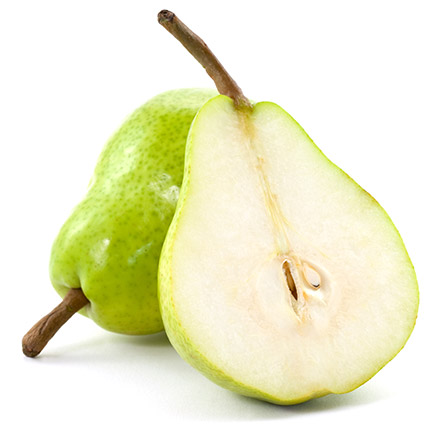
Pears
growing levels of chemicals detected
Pears are new to the Dirty Dozen list.
Pesticide residue is on the rise in pears, having doubled since 2010. Some of the fruit tested came back with over 20 different fungicides that were still in the pear.
Pears are abundant in the fall, look for organic especially when feeding children pears and purees.
|

Cherries
sweet bites of red
This sweet bite is loaded with chemicals and pesticides.
As with most toxins sprayed on fruit, it doesn't just stay on the skin, it can't be washed off, it's IN the fruit itself.
"The fat and water-solubility properties of the pesticides and the non-ionic solvents and surfactants used offer access of the chemicals to every cell in the produce, and thus to every cell in your body," explains Porter. "It's a very serious matter, especially since we know that our own hormone systems respond in the parts per trillion to chemicals." RodalesOrganicLife
|
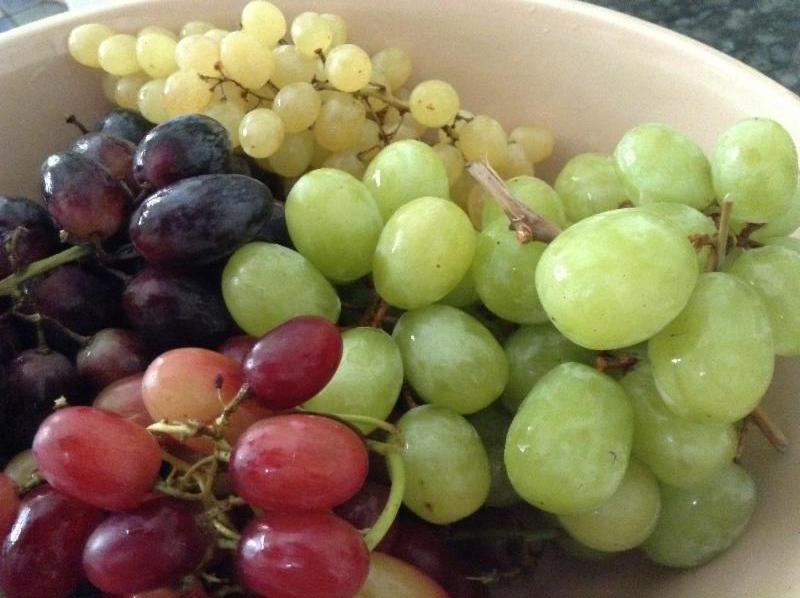
Grapes
well loved by children
We love when our kids grab a healthful snack, like grapes. Children also tend to choose the same foods over again. This is especially true with young children. And they are the ones most susceptible since they have developing bodies and brains. Because of that, they may be taking in a disproportionate amount of the pesticides when they need the most nutritious, cleanest foods available.
Choose organic for any of your children's favorites and the most eaten foods in your family to minimize the exposures to chemicals.
|
Organophosphates is a good example. Even though these chemicals are banned from household products and have been withdrawn from agricultural use, they are still applied to some crops. Long-term studies indicate that children exposed to these chemicals (by ingesting the produce sprayed with them) were high enough to cause lasting damage to their nervous system and brain. The study compared those who ate organic and showed they had significantly less of this toxin in their bodies.
Read the EWG report here.
|
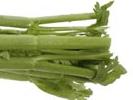
Celery
one you may not think about
Celery is part of the mirepoix and is standard in cooking, usually as a supporting role behind the scenes so we don't always think about it especially when dining out. It's also a classic snack with peanut butter and raisins for kids. Remember that when using or chomping down on celery, choose organic.
|

Tomatoes
sweet tomatoes are abundant in summer
Be sure to find some delectable heirloom tomatoes this summer and remember to choose organic.
Choosing organic doesn't just impact that one fruit, and your body and family. Pesticides used on crops end up in our water supply. The pesticides kill off beneficial, carbon-storing microorganisms in the soil thereby reducing overall soil quality and making it easier for disease to run rampant, thereby continuing the cycle of needing more pesticides. Your choice to use organic is a huge decision that helps us all.
|

Peppers
sweet bells but also hot peppers, choose organic
Bell Peppers are continually on the list with high levels of pesticides, but Hot Peppers have pushed the EWG to create a Dirty Dozen Plus to include them as well. They are contaminated with insecticides toxic to the human nervous system. If you love it hot and spicy, choose organic.
|
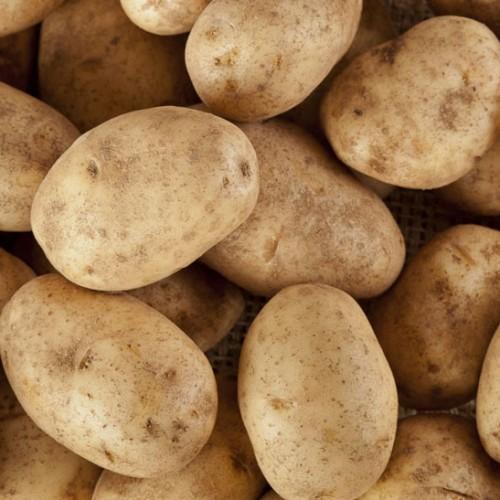
Potatoes
what? fries?
Yes! Something we don't think about, giving our kids fries at the fast food place, those are not good for us in so many ways and now add the high levels of pesticides that are in the potato. As a root veg, potatoes absorb all the pesticides, herbicides, insecticides from the soil. They are sprayed while growing, just before harvest and again after being dug up!
Of the 35 different pesticides routinely used sparingly on potato crops, 6 are probable carcinogens, 12 hormone disruptors, 7 neurotoxins and 6 reproductive toxins.
The chemicals are also toxic to our beloved honeybee.
Jeff Moyer
, farm director at the Rodale Institute and former chair of the National Organic Standards Board, has been quoted as saying "I've talked with potato growers who say point-blank they would never eat the potatoes they sell. They have separate plots where they grow potatoes for themselves without all the chemicals."
Demand organic. If the restaurants see we stop buying them if conventional, they will choose organic too. This one change could make a huge difference in our planet and overall health.
|
Smart Choices
choose organic for what you eat most, especially for children
 Those of us who choose organic, ingest far fewer chemicals and pesticides. While it's difficult, maybe impossible, to choose organic all of the time, that's not a reason to throw in the towel and give up completely.
Choose organic for what you and your family eats most, even if not on the list. This will lessen your exposure to chemicals in general and to higher levels of the same pesticide more specifically.
|
|
|
|
|